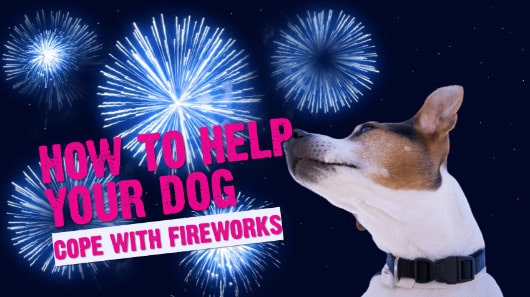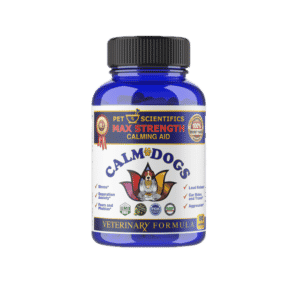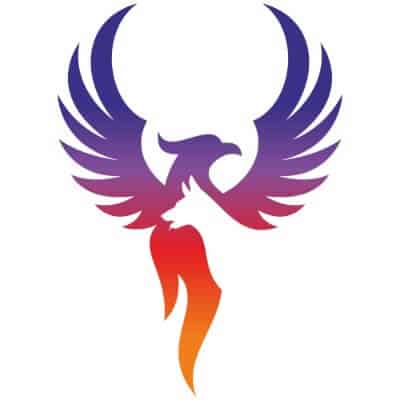Dogs and Fireworks: How to Keep Your Dog Calm During Fireworks Anxiety.
Updated December 25th, 2022
The 4th of July and New Year’s are the busiest day at shelters across the United States. This article will discuss dogs and fireworks and how to calm your dog during fireworks anxiety. We will discuss what you can do in the short term, what you can do in the long term, and what options there are with behavior modification and or behavioral medicine.
Every year shelters across the United States fill up with dogs due to the New Years’ Fireworks Celebration and the 4th of July fireworks. Many dogs experience terrible panic attacks and have sound sensitivity issues. The first thing you need to do is keep your pets safe. If you know your dog has sound phobias, specifically to fireworks, make sure You do not leave your dog home alone on the 4th of July. Many dogs escape and run away with severe fear and anxiety about fireworks. Make sure that your dog is microchipped and has a collar with an ID tag in case it does get away and gets lost.
Keep Your Dog Safe on New Years and the 4th Of July.
It is important to ensure you stay home with a dog with anxiety and fears of fireworks. Be sure your pet has a collar with an I.D. tag. Millions of dogs go missing each year on the weekend of the 4th of July, trying to escape the fear of fireworks. Dogs escape and run away. Some even jump through glass windows to escape.
If your dog is not microchipped, make an appointment with your vet to chip your pooch. Some dogs will need to be kept by your side on a leash because they get so upset. Dogs want quiet when the loud sounds of fireworks come. Here are some things you can do to help dampen the sound for your dog.
Take your dog into a closet or walk-in closet. The closet full of clothes is almost a soundproof room. Consider sitting in the closet with your pet with a radio on or while playing music. Studies show that dogs have a favorite genre of music, and it happens to be reggae. So spin some Bob Marley and chill together this 4th of July.
Dogs and Fireworks: How to Keep Your Dog Calm During Fireworks Anxiety with Counterconditioning and Desensitization
What really needs to happen to help your dog with fireworks and its fireworks anxiety is to teach it to be calm and relaxed. This takes time. However, it can be done, and you can have success. The principles of counterconditioning and desensitization are what you will employ to be able to teach your dog to be calm and relaxed during fireworks.
Counterconditioning is just a fancy word that means pairing something positive and something the dog likes a lot with something the dog does not like, such as the sound of fireworks. Over time gradually and systematically playing the sound of fireworks at very low volumes and pairing them with high-value food rewards is part of this process. You can’t go quicker than the dog’s ability to get comfortable with the volume level you are trying to desensitize. This is something that can take weeks or months to accomplish. Counterconditioning and desensitization need to be done three to five times a week. When you are doing counter-conditioning and desensitization work, you will do this for 10 to 15 minutes. It is best to have more than one 10 to 15 minutes desensitization training session in a day. Below is a video (All Audio) with instructions on desensitizing and counter-conditioning the fear of fireworks and 10 hours of recorded fireworks sound.
Dogs and Fireworks: How to Keep Your Dog Calm During Fireworks Anxiety with Anxiety Medication for Dogs
If you do not have time before either New Years or the 4th of July and fireworks to be able to counterconditioning and desensitize your dog, there are still some things you can do to help keep your dog safe and calm during fireworks and help with your dog’s anxiety. One option is to contact your dog’s veterinarian and have them prescribe medication for your dog to help keep it calm and relaxed on New Years or the 4th of July. With some dogs, their fears and phobias of loud sounds, such as fireworks, will be so severe that they will definitely need medication. Only with long-term counterconditioning and desensitization will these dogs with the most severe fears and phobias of sounds such as fireworks will get better without medication. That by no means is saying that every dog with anxiety and a fear of fireworks needs to have medication.
Whether your dog needs medication or not, if New Years or the 4th of July is right around the corner and you have not had the time to fully counter condition and desensitize your dog to teach it to be relaxed and calm when it hears fireworks, there are things you can do on the 4th of July to help ease your dog’s anxiety. If you are able to decrease the volume of the sounds of the loud fireworks, your dog will be calmer. So how can you do that in the home with your dog? Find the quietest place in the house. Typically, that is going to be a clothes closet with many clothes in it. clothes closets are almost soundproof rooms period because of the high volume of cloth and clothing in a closet; it acts as superior sound-dampening material. Most often, it will be the quietest part of your home. During fireworks, you can bring yourself and your dog into the closet and play music on your smartphone, which will also drown out the sound of fireworks. If your dog is not too anxious, you may be able to begin counterconditioning in the closet. Below is a podcast that gives very specific guidelines on how to counter conditions and desensitize your dog to loud noises such as fireworks.
TRY NATURAL CALMING AIDS
CALM DOGS “The World’s Best Dog Anxiety Calming Aid.”
CALM DOGS “The World’s Best Dog Anxiety Calming Aid.” Learn more about how CALM DOGS can help your dog with dog anxiety, fears, phobias, and aggression.
Dogs and Fireworks: How to Keep Your Dog Calm During Fireworks Anxiety Podcast (Full Episode)
By: Will Bangura, M.S., CBCC-KA, CPDT-KA is an Associate Applied Animal Behaviorist and Nationally Certified Behavior Consultant Certified Professional Dog Trainer. Mr. Bangura is the Phoenix Dog Training owner and a Dog Behaviorist in Phoenix, Arizona. He specializes in treating dogs with severe behavior problems such as canine aggression, anxiety, fears, phobias, and severe separation anxiety in dogs, to name a few. He also has a National Dog Behaviorist Consulting Business at DogBehaviorist.com



